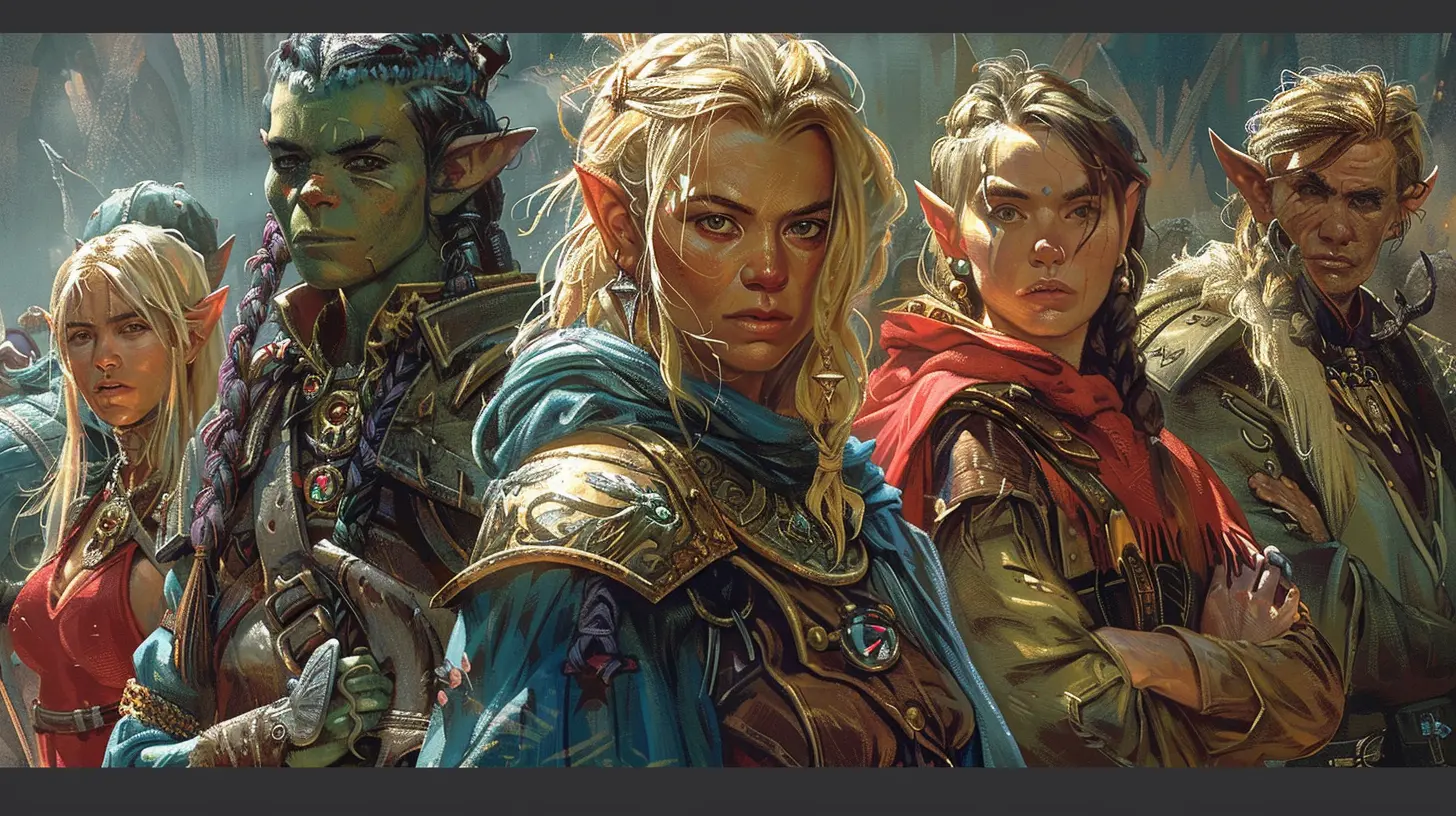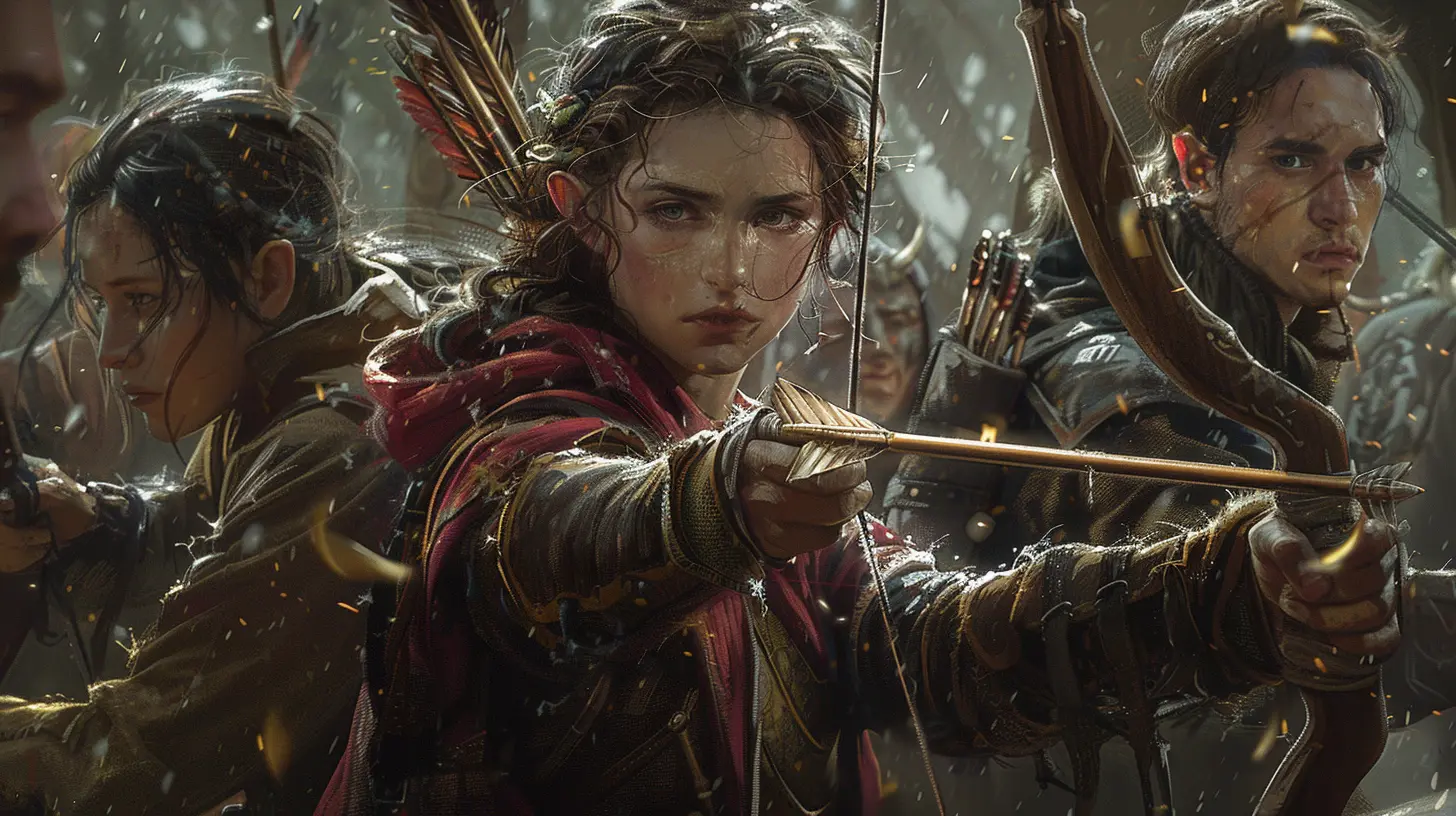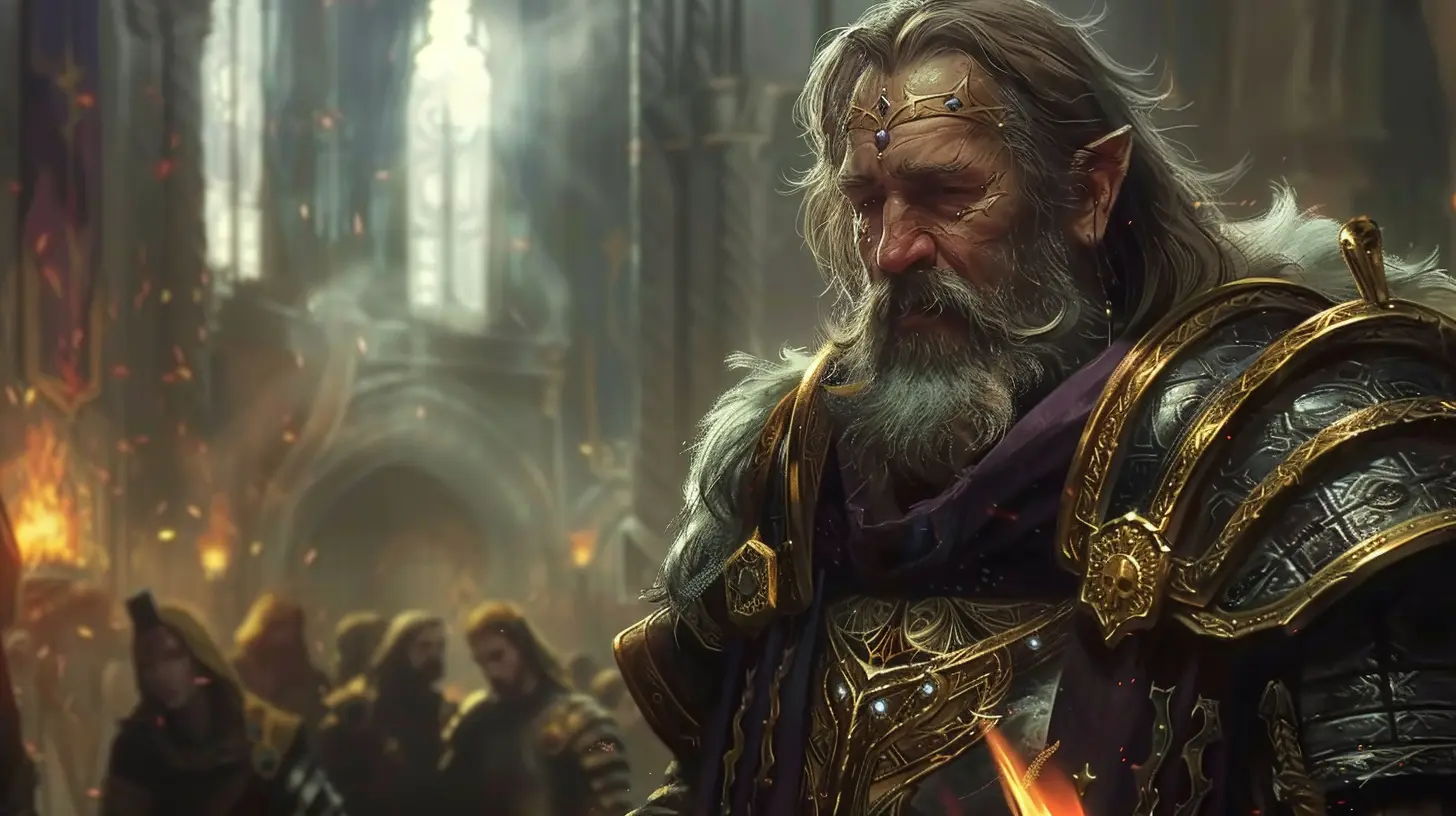The Role of Voice Acting in Bringing RPG Characters to Life
12 June 2025
If you’ve ever sunk hours—maybe even days—into an RPG, you know the magic of really feeling like you’re walking in another world. And while stunning visuals, captivating storylines, and complex gameplay all play their part, there’s one unsung hero that deserves more love: voice acting. Yep, those lines you hear from your favorite characters? They’re doing a lot more than just filling silence.
Voice acting doesn’t just breathe life into characters—it is the breath. Without it, even the most detailed, emotionally driven NPCs can fall flat. Let’s dive into how voice acting shapes our gaming experiences and makes RPG characters feel as real as your best friend or worst enemy.
Why Voice Acting in RPGs Matters So Much
Imagine playing your favorite RPG with mute characters. Sure, you’d still get the story from text, maybe even enjoy the game, but would you really connect with the characters the same way?Voice acting brings depth, warmth, and emotion. It lets us hear joy, pain, sarcasm, fear—even awkward pauses. You know those moments where a character stutters, sighs, or laughs unexpectedly? That’s not the script—that’s the actor doing their job and doing it well.
And when it’s done right? It’s like plugging your heart straight into the game.
RPGs Are Character-Driven—And That’s Where Voice Matters
Role-playing games thrive on character development. Whether you’re building your own hero from scratch or growing attached to a companion with a tearjerker backstory, characters are the heart of any RPG.Voice acting doesn’t just “act out” what’s written—it amplifies it.
Think about Mass Effect’s Commander Shepard. Without voice acting, would Shepard have felt as real, as complex, or as badass? Or The Last of Us’s Ellie and Joel—it's their voices that haunt you long after the credits roll.
And it’s not just about emotional investment. Voice modulation helps show growth. A green, naive character at the beginning can sound more confident and weathered by the end—and you feel every ounce of that growth.
Emotional Connection: Feeling the Feels
Voice acting is key to pulling heartstrings. It’s the difference between reading “I’m sorry” and hearing it whispered with a trembling voice.When you hear the pain, uncertainty, or joy in a character’s tone, it hits differently. Your brain registers it more viscerally. Ever cried during a game cutscene? Yeah, thank the voice actor.
RPGs are emotional journeys. They break your heart, make you laugh, stir up anger, and sometimes leave you speechless. And good voice acting is the backbone of those reactions.
World-Building Through Voice
It’s not just main characters either. In richly populated RPG worlds, every guard, merchant, or farmer adds to the immersion. That snarky innkeeper or that creepy villain isn’t just reading lines—they become those roles.Accents, slang, pacing—these elements help define the culture, history, and even geography of a game’s universe. The voice actor's role? To blend all of that into a believable, living, breathing world.
Remember Skyrim? The voices helped carve out the Nordic atmosphere, giving the whole game a distinct flavor you could almost hear through the snow.
Player Choice and Consequence—Enhanced
Modern RPGs often offer branching paths, multiple dialogue choices, and moral dilemmas. When each choice is voiced, it makes your decision more real.It’s easy to click a dialogue option in silence. But when you hear your character say something cruel, noble, or reckless—it sorta hits you in the gut. Your actions feel more weighty, more permanent.
Voice acting adds that accountability. Suddenly, you’re not just selecting lines—you’re living them.
Humor and Personality Really Shine
Text alone can’t carry comedic timing. Voice acting nails those beats.Sarcastic quips, deadpan delivery, or over-the-top dramatics? All of it needs a human voice to land. A monotone or poorly delivered line can totally tank a joke, while a well-delivered sarcastic drawl can make you laugh out loud.
Even personality quirks—like a character who nervously mumbles or boastfully shouts everything—come alive through vocal performance. They become someone you remember, not just someone you read.
The Actor’s Touch: When They Go Off Script
Here’s a fun fact: many iconic lines weren’t even in the original scripts. Skilled voice actors often improvise, add subtle nuances, or play with delivery in a way that elevates the whole experience.Moments like Geralt’s dry humor in The Witcher or the inflection in John Marston’s voice in Red Dead Redemption? A lot of that is thanks to the actor understanding the role deeply—and making it their own.
They’re not just reading—they're performing. And sometimes, that makes all the difference.
When Voice Acting Goes Wrong
Let’s be real—bad voice acting can seriously ruin immersion.Flat delivery, mismatched tone, or awkward pacing can pull you out of the story faster than a glitch. Suddenly, the big boss fight doesn’t feel epic—it feels like a high school play.
Sadly, this happens when developers don’t prioritize voice direction or settle for quantity over quality. It’s like painting a masterpiece with cheap brushes—it won't work.
So, always appreciate good voice acting when you hear it. It’s not as easy as it sounds (pun intended).
From Indie Gems to AAA Epics: It’s Everywhere
It’s not just blockbuster games that are nailing voice acting. Indie RPGs are stepping up too.Games like Hades, Disco Elysium, and Hollow Knight (yes, even with minimal voice work) use voice to enhance storytelling beautifully. Even when there’s little dialogue, the use of sound and delivery adds emotional texture.
The best part? More games are investing in diverse voice casts, putting real effort into accents, representation, and authenticity. It's a long-overdue shift and it’s making RPGs better across the board.
Tech Is Leveling Up Voice Acting
With AI, motion capture, and better sound design, the line between voice acting and full-blown acting is blurring. Actors now wear suits, track facial expressions, and sync their voice to lifelike animations.That’s how we get characters that feel real—because they almost are.
And as we move towards more realistic, emotionally intelligent games, voice acting is becoming even more crucial. We’re not just watching stories anymore—we’re in them.
Voice Actors Deserve More Credit
Here’s an honest thought: most gamers know the face of their favorite character, but not the name of the actor behind them.Voice actors are the invisible glue holding our emotional connection to these games together. Their work is intense, often underappreciated, and makes a colossal impact.
Think of Laura Bailey, Troy Baker, Jennifer Hale, Yuri Lowenthal—their voices have shaped gaming history. Yet, they often work behind the curtain.
Let’s give them the spotlight they deserve. Because without them, RPGs wouldn’t be half as immersive.
Wrapping It Up: Their Voices, Our Experience
So, what’s the takeaway? Voice acting is the heartbeat of RPG characters. It’s the difference between “good” and “great,” between passable quests and unforgettable journeys.When done right, voice acting makes us cry, laugh, rage, and care. It turns dialogue into drama, decisions into dilemmas, and digital characters into old friends.
So next time you're on an epic quest, take a moment to appreciate the voices guiding you along. They’re not just background noise—they’re the soul of the story.
all images in this post were generated using AI tools
Category:
Role Playing GamesAuthor:

Whitman Adams
Discussion
rate this article
3 comments
Thornewood Klein
Great article! Voice acting truly adds depth and personality to our favorite RPG characters!
June 22, 2025 at 2:34 AM

Whitman Adams
Thank you! I'm glad you enjoyed it. Voice acting really does enhance the emotional connection to characters!
Hugo McFarlin
Voice acting significantly enhances character depth and emotional engagement in RPGs, making interactions more immersive and memorable for players.
June 17, 2025 at 3:26 AM

Whitman Adams
Absolutely! Voice acting adds layers to characters, enriching the player's emotional experience and creating truly unforgettable moments in RPGs.
Briar Nguyen
Voice acting enhances emotional depth, making RPG characters truly memorable.
June 14, 2025 at 3:28 PM

Whitman Adams
Absolutely! Voice acting adds layers to characters, allowing players to connect with their emotions and making the overall experience more immersive and memorable.



